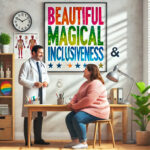Seventeen stories of eating disorder survival
Seventeen stories of eating disorder survival
No two stories of recovery from an eating disorder are the same. ‘Recovery’, what this means, also may differ from one person to another. That’s okay. That’s good. Because no two people are the same. You are an individual in your own right. What matters is that you find a way to regain your self and your freedom from an illness that has been a bully in your brain and has caused a disconnection within your body. This is what counts: the freedom for your self to be at one with your body. When your self and body are integrated, you do not dream of self-harming.
By sharing stories of recovery of self, we empower others to come forward and share their story. All our stories have some common threads [struggle, persistence, slip, slide, struggle, persistence…nobody said this would be easy…and eventually, eventually (for we never-ever give up) the exaltation of liberation, of the freedom-to-be]. Writer, performer, and body empowerment advocate, Caroline Rothstein, has spent much of her life sharing her eating-disorder survival story. Yet, she says:
it feels impossible to perfectly articulate the deadly mental illness that is an eating disorder, as the journey of survival is uniquely personal.
To illustrate the diversity of recovery, Caroline has sourced first-person stories from a diverse array of people worldwide who have experienced various eating disorders and experiences with body image, and who describe their survival in myriad ways. Her article creates a kaleidoscope of recovery and its impact. My story is among them. Click here.
As Caroline puts so well:
Eating-disorder recovery is not easily definable. Recovery and survival from any trauma, mental illness, addiction, or disembodiment of self looks and feels different to and for everyone.
One thing is certain: Eating disorders do not discriminate. And all too often, they are neither obvious nor visible in presentation. All too often, they are stigmatized, or silenced altogether.
If you have an eating disorder, or think you may be experiencing a symptom or two, reach out for help today. Today.





